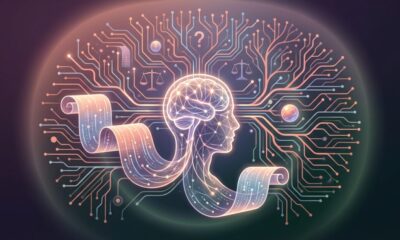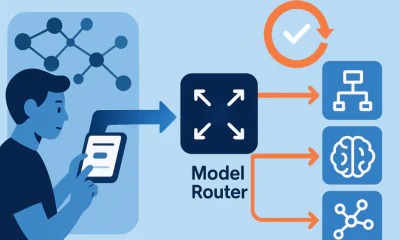Interviews
Huma Abidi, Senior Director of AI Software Products at Intel – Interview Series

Huma Abidi is a Senior Director of AI Software Products at Intel, responsible for strategy, roadmaps, requirements, machine learning and analytics software products. She leads a globally diverse team of engineers and technologists responsible for delivering world-class products that enable customers to create AI solutions. Huma joined Intel as a software engineer and has since worked in a variety of engineering, validation and management roles in the area of compilers, binary translation, and AI and deep learning. She is passionate about women’s education, supporting several organizations around the world for this cause, and was a finalist for VentureBeat’s 2019 Women in AI award in the mentorship category.
What initially sparked your interest in AI?
I’ve always found it interesting to imagine what could happen if machines could speak, or see, or interact intelligently with humans. Because of some big technical breakthroughs in the last decade, including deep learning gaining popularity because of the availability of data, compute power, and algorithms, AI has now moved from science fiction to real world applications. Solutions we had imagined previously are now within reach. It is truly an exciting time!
In my previous job, I was leading a Binary Translation engineering team, focused on optimizing software for Intel hardware platforms. At Intel, we recognized that the developments in AI would lead to huge industry transformations, demanding tremendous growth in compute power from devices to Edge to cloud and we sharpened our focus to become a data-centric company.
Realizing the need for powerful software to make AI a reality, the first challenge I took on was to lead the team in creating AI software to run efficiently on Intel Xeon CPUs by optimizing deep learning frameworks like Caffe and TensorFlow. We were able to demonstrate more than 200-fold performance increases due to a combination of Intel hardware and software innovations.
We are working to make all of our customer workloads in various domains run faster and better on Intel technology.
What can we do as a society to attract women to AI?
It’s a priority for me and for Intel to get more women in STEM and computer science in general, because diverse groups will build better products for a diverse population. It’s especially important to get more women and underrepresented minorities in AI, because of potential biases lack of representation can cause when creating AI solutions.
In order to attract women, we need to do a better job explaining to girls and young women how AI is relevant in the world, and how they can be part of creating exciting and impactful solutions. We need to show them that AI spans so many different areas of life, and they can use AI technology in their domain of interest, whether it’s art or robotics or data journalism or television. Exciting applications of AI they can easily see making an impact e.g. virtual assistants like Alexa, self-driving cars, social media, how Netflix knows which movies they want to watch, etc.
Another key part of attracting women is representation. Fortunately, there are many women leaders in AI who can serve as excellent role models, including Fei-Fei Li, who is leading human-centered AI at Stanford, and Meredith Whittaker, who is working on social implications through the AI Now Institute at NYU.
We need to work together to adopt inclusive business practices and expand access of technology skills to women and underrepresented minorities. At Intel, our 2030 goal is to increase women in technical roles to 40% and we can only achieve that by working with other companies, institutes, and communities.
How can women best break into the industry?
There are a few options if you want to break into AI specifically. There are numerous online courses in AI, including UDACITY’s free Intel Edge AI Fundamentals course. Or you could go back to school, for example at one of Maricopa County’s community colleges for an AI associate degree – and study for a career in AI e.g. Data Scientist, Data Engineer, ML/DL developer, SW Engineer etc.
If you already work at a tech company, there are likely already AI teams. You could check out the option to spend part of your time on an AI team that you’re interested in.
You can also work on AI if you don’t work at a tech company. AI is extremely interdisciplinary, so you can apply AI to almost any domain you’re involved in. As AI frameworks and tools evolve and become more user-friendly, it becomes easier to use AI in different settings. Joining online events like Kaggle competitions is a great way to work on real-world machine learning problems that involve data sets you find interesting.
The tech industry also needs to put in time, effort, and money to reach out to and support women, including women who are also underrepresented ethnic minorities. On a personal note, I’m involved in organizations like Girls Who Code and Girl Geek X, which connect and inspire young women.
With Deep learning and reinforcement learning recently gaining the most traction, what other forms of machine learning should women pay attention to?
AI and machine learning are still evolving, and exciting new research papers are being published regularly. Some areas to focus on right now include:
- Classical ML techniques that continue to be important and are widely used.
- Responsible/Explainable AI, that has become a critical part of AI lifecycle and from a deployability of deep learning and reinforcement learning point-of-view.
- Graph Neural Networks and multi-modal learning that get insights by learning from rich relation information among graph data.
AI bias is a huge societal issue when it comes to bias towards women and minorities. What are some ways of solving these issues?
When it comes to AI, biases in training samples, human labelers and teams can be compounded to discriminate against diverse individuals, with serious consequences.
It is critical that diversity is prioritized at every step of the process. If women and other minorities from the community are part of the teams developing these tools, they will be more aware of what can go wrong.
It is also important to make sure to include leaders across multiple disciplines such as social scientists, doctors, philosophers and human rights experts to help define what is ethical and what is not.
Can you explain the AI blackbox problem, and why AI explainability is important?
In AI, models are trained on massive amounts of data before they make decisions. In most AI systems, we don’t know how these decisions were made — the decision-making process is a black box, even to its creators. And it may not be possible to really understand how a trained AI program is arriving at its specific decision. A problem arises when we suspect that the system isn’t working. If we suspect the system of algorithmic biases, it’s difficult to check and correct for them if the system is unable to explain its decision making.
There is currently a major research focus on eXplainable AI (XAI) that intends to equip AI models with transparency, explainability and accountability, which will hopefully lead to Responsible AI.
In your keynote address during MITEF Arab Startup Competition final award ceremony and conference you discussed Intel’s AI for Social Good initiatives. Which of these Social Good projects has caught your attention and why is it so important?
I continue to be very excited about all of Intel’s AI for Social Good initiatives, because breakthroughs in AI can lead to transformative changes in the way we tackle problem solving.
One that I especially care about is the Wheelie, an AI-powered wheelchair built in partnership with HOOBOX Robotics. The Wheelie allows extreme paraplegics to regain mobility by using facial expressions to drive. Another amazing initiative is TrailGuard AI, which uses Intel AI technology to fight illegal poaching and protect animals from extinction and species loss.
As part of Intel’s Pandemic Response Initiative, we have many on-going projects with our partners using AI. One key initiative is contactless fever detection or COVID-19 detection via chest radiography with Darwin AI. We’re also working on bots that can answer queries to increase awareness using natural language processing in regional languages.
For women who are interested in getting involved, are there books, websites, or other resources that you would recommend?
There are many great resources online, for all experience levels and areas of interest. Coursera and Udacity offer excellent online courses on machine learning and seep learning, most of which can be audited for free. MIT’s OpenCourseWare is another great, free way to learn from some of the world’s best professors.
Companies such as Intel have AI portals that contain a lot of information about AI including offered solutions. There are many great books on AI: foundational computer science texts like Artificial Intelligence: A Modern Approach by Peter Norvig and Stuart Russell, and modern, philosophical books like Homo Deus by historian Yuval Hararri. I’d also recommend Lex Fridman’s AI podcast on great conversations from a wide range of perspectives and experts from different fields.
Do you have any last words for women who are curious about AI but are not yet ready to leap in?
AI is the future, and will change our society — in fact, it already has. It’s essential that we have honest, ethical people working on it. Whether in a technical role, or at a broader social level, now is a perfect time to get involved!
Thank you for the interview, you are certainly an inspiration for women the world over. Readers who wish to learn more about the software solutions at Intel should visit AI Software Products at Intel.












